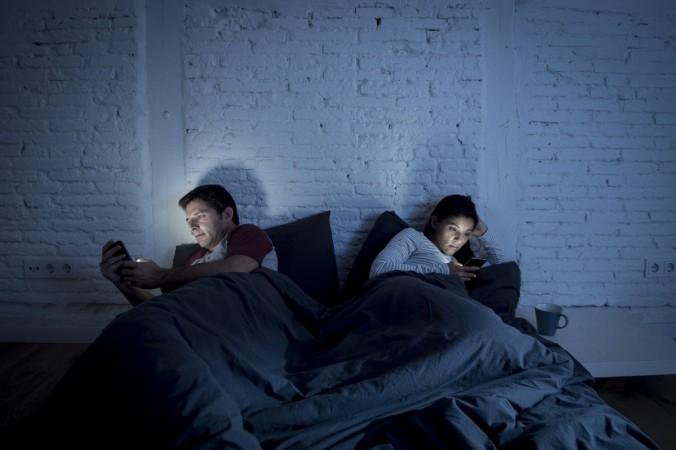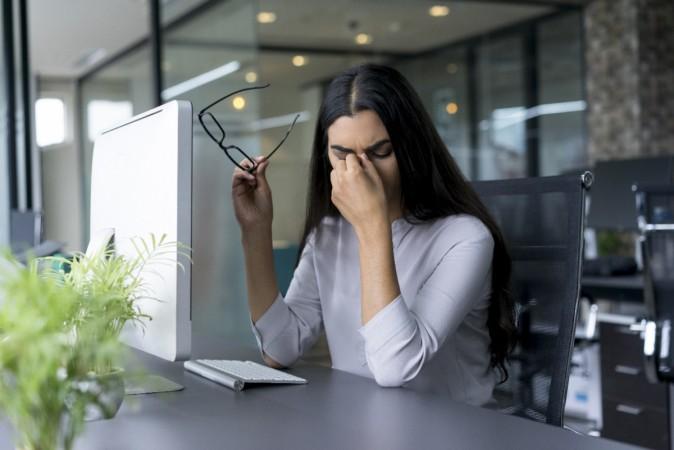
People all over the world have been so addicted towards the use of smart phones that they are spending more time on a daily basis using them for making calls and working on apps.
Increasing Smartphone Usage
A usual day of a working individual starts with the use of smartphone and ends with it as well. Here is what the schedule of one of the employees, we spoke with, in a multi-national company looks like:
- Waking Up in the Morning – Looking at the smartphone to check emails, important messages, phone calls etc.
- While Freshening Up – Looking at the smartphone to browse apps like Facebook, WhatsApp, LinkedIn, Instagram etc.
- While Going to the Office – Getting directions from GPS (Google Maps), making or receiving official calls, browsing apps etc.
- While Working in the Office – Constantly doing things related to office work and making or receiving calls.
- While Coming Back from Office - Getting directions from GPS (Google Maps), making or receiving official calls, browsing apps, watching a Netflix series or a movie etc.
- While Having Dinner – Looking at the smartphone for office updates, chatting with friends using different apps, watching news on YouTube.
- Before Sleeping - Looking at the smartphone to check emails, important messages, browsing different apps etc.

A usual day of a corporate employee involves about 3 to 8 hours of phone usage depending upon they type of work they do. The case of a businessman is no different. Some businessmen have a phone usage time of 8 to 12 hours which can be very critical.
How is this Associated with Blindness?
The smartphones, laptops and desktops emit a peculiar type of light known as Blue Light. As per the research done by the scientists from University of Toledo, if a human eye is exposed to this blue light for a long time, due to the usage of smartphones and laptops or otherwise, it could slowly result in age related macular degeneration. Macular Degeneration is the primacy cause for loss of vision in people. This affects people of all ages.

Is this only happening in developed countries? Absolutely not. Dr. Rahil Chaudhary, from Eye7 Chaudhary Eye Centre says that "This problem is not dependent on any location. The smartphones and laptops have now reached every part of the world. Most of the smartphones and laptops are made in China. The problem is caused by the blue light that is not blocked by the eye".
This has given birth to a new term called the Transient Smartphone Blindness.
Why is this Blue Light so Dangerous?
The blue light penetrates through the eye's cornea, unlike other types of lights, because the lens or the cornea cannot block it due to its nature. In severe cases, this would slowly cause the vision to blur and eventually results in its loss. The whole process, popularly known as macular degeneration, is a common retinal problem where a small part of the retina, known as the macula, is severely damaged.
What Can You Do About It?

Do Not Use a Smartphone or a Laptop Just Before Sleeping - The blue light not only harms the eyes but affects the sleep as well. It sends some signals to the brain which makes it believe that it is still daylight. This is the primary reason of people not sleeping properly after prolonged usage of smartphones and laptops just before sleeping.
Wash Your Eyes at least 4 Times a Day – Washing your eyes can prove to be very healthy for them. One must always wash their eyes with clean water. This keeps the eyes dirt free and hydrated. It also helps in taking away the strain from the eyes.
Limit Your Screen Time – Be it any type of screen, the less you stare at it, the healthier your eyes will be. One can also follow the 20-20-20 Rule that says after every 20 minutes, for 20 seconds, one must take a look at an object that is 20 feet away. Also, the use of screen filters, that block blue light, can be an alternative if there is absolute necessity of higher screen time.
Use the Most Appropriate Pair of Glasses or Lenses – The glasses or lenses that block the blue light are easily available in the market. As a best practice, one should always consult an ophthalmologist before deciding upon the type of eye glasses or lenses to use.








